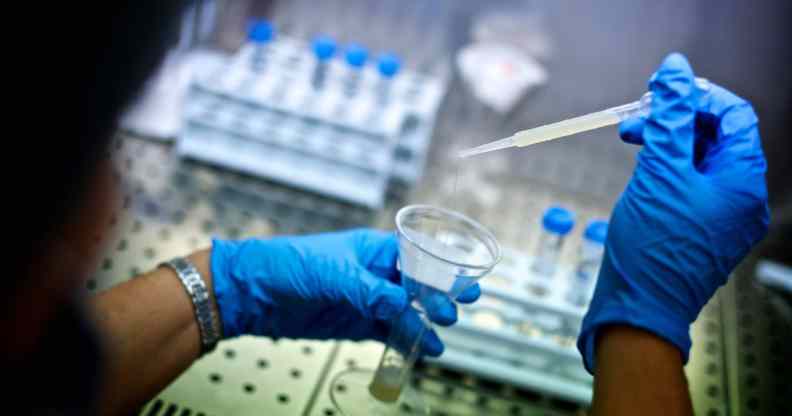Mum fighting to save her dead trans daughter’s frozen sperm wins crucial Christmas reprieve in courts

Louise Anderson hopes to use the sperm sample to fulfil her daughter’s dying wish (BSIP/UIG/ Getty)
A mother fighting to stop the frozen sperm of her late trans daughter from being destroyed has been given new hope as the courts grant another reprieve.
Louise Anderson, 45, launched a legal bid to stop the NHS destroying the sperm samples of her 16-year-old trans daughter Ellie, who tragically died in July. Ellie’s last wish was to have a child of her own, and her mother hopes to honour this by using her DNA with a donor egg and surrogate.
She was given a temporary reprieve in September, and now Scotland’s highest court has granted a further extension until 12 January to allow time for the health board to release Ellie’s medical records.
“It’s a relief to be honest, because it’s been a waiting game up till now and I was very aware that the clock was ticking,” Anderson told The Scottish Sun.
“Now we can breathe a bit in the run-up to Christmas and our lawyers will have time to get our application in. I see this as a positive.”
UK fertility legislation would have allowed Ellie to transfer the rights to her sperm over to a partner if she was in a relationship, but there is no precedent for those rights to be transferred to a parent.
Anderson’s legal team is hoping to use an ancient legal manoeuvre unique to Scottish law: a special power called the nobile officium, which allows judges to provide a legal remedy where statute or the common law are silent.
Historically it’s been used to address situations of incompetency, unlawfulness, irregularity and bias, excessive and oppressive sentences and other procedural issues.
The plan is to use the manoeuvre to make a test case ruling that could set a new legal precedent. To do this they need the medical records from the NHS – but continuing delays in reviewing and redacting the documents have thrown the case in jeopardy.
“We need them for various reasons to frame any court application, because what is in the medical records might be relevant,” said solicitor Virgil Crawford.
“Because of the delay in getting the records to us the [NHS] Central Legal Office now accept that none of us are going to be able to meet the [earlier] deadline of 30 November.
“The law on the issue is quite complicated, and there are lots of things in the background that we need to look at. There are specific things in the records we need to look at, because we will need to refer to them in any application.”
In the meantime, Louise Anderson is campaigning for the UK government to change the law so no other parents are forced to fight the same battle.

